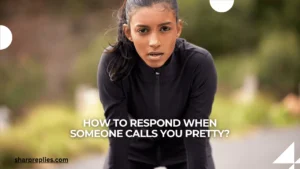We’ve all been there. You’re sitting in a conversation when someone asks a question that makes you uncomfortable, or one that feels intrusive.
Suddenly, you’re faced with a dilemma: should you answer honestly, give a vague response, or avoid the question entirely? The ability to avoid answering unwanted questions is an essential skill, one that can save you from awkward situations, maintain your privacy, and preserve your boundaries.
In a world where people often feel entitled to ask personal or probing questions, learning how to navigate these situations with grace and confidence is crucial.
This article will explore why it’s important to avoid answering unwanted questions, offer practical techniques for handling uncomfortable inquiries, and provide strategies for maintaining your dignity and composure when faced with such moments.
By the end of this post, you’ll feel empowered to manage those tricky situations with ease.
Contents
- 1 Why We Need to Avoid Answering Unwanted Questions
- 2 Understanding Different Types of Unwanted Questions
- 3 Techniques to Gracefully Avoid Unwanted Questions
- 4 The Psychological Benefits of Avoiding Unwanted Questions
- 5 When to Answer Honestly and When to Deflect
- 6 Conclusion
- 7 FAQ’s
- 7.0.1 How do I avoid answering unwanted questions without sounding rude?
- 7.0.2 What if I don’t want to hurt someone’s feelings by avoiding their question?
- 7.0.3 Are there situations where it’s okay to answer an unwanted question?
- 7.0.4 What’s the best way to handle unwanted questions at work?
- 7.0.5 Is it rude to avoid answering a personal question?
- 7.0.6 How can I tell if a question is inappropriate?
Why We Need to Avoid Answering Unwanted Questions
In our everyday interactions, we all encounter questions that feel too personal, intrusive, or simply irrelevant.
While curiosity is natural, sometimes people cross boundaries by asking questions that make us uncomfortable or pressuring us to reveal more than we’re willing to share. Understanding why we need to avoid answering unwanted questions is essential for maintaining our mental and emotional well-being.
One of the key reasons for avoiding certain questions is to protect our personal boundaries. Some questions may touch on sensitive topics, like our financial situation, love life, or past experiences, and answering them may invite unnecessary stress or unwanted judgment.
By mastering the skill of deflecting or avoiding these questions, we ensure that we stay in control of our own narrative, preserving our privacy and sense of security.
In addition, avoiding unwanted questions allows us to cultivate healthier relationships by setting clear boundaries with others, making them aware of what is and isn’t acceptable.
Understanding Different Types of Unwanted Questions
Not all unwanted questions are created equal.
They can come in various forms, ranging from nosy inquiries about our personal lives to more subtle but equally intrusive comments. Some questions are clearly inappropriate, such as asking about someone’s salary or relationship status, while others may be disguised as casual curiosity.
For instance, questions that involve judgment or criticism can make us feel self-conscious. A question like, “Why aren’t you married yet?” or “When are you going to have kids?” might make someone feel inadequate or pressured.
On the other hand, questions that force us into a defensive position—such as probing about our past mistakes or beliefs—can lead to discomfort and stress. Recognizing these types of questions is the first step toward mastering the art of avoidance.
By understanding their nature, we can better prepare to deflect them without feeling guilty or uncomfortable.
Techniques to Gracefully Avoid Unwanted Questions
Knowing how to deflect or avoid answering unwanted questions can be a delicate art. It’s not about being rude or evasive; it’s about managing your responses with poise and tact. Here are a few effective techniques to gracefully handle such questions:
- Redirect the conversation: If someone asks an uncomfortable question, try steering the conversation toward a topic you’re more comfortable discussing. For example, if someone asks about your personal life, you can respond with, “That’s an interesting question!
- By the way, have you heard about [topic]?” This shift can smoothly move the conversation in a more neutral direction.
- Answer with humor: Sometimes, using humor can lighten the mood and deflect a probing question. A witty response can show that you’re not taking the question seriously and that you prefer to keep things lighthearted.
- For example, if someone asks about your plans for the future, you could respond with a playful, “I’m just waiting for the next plot twist in my life!”
- Use vague responses: Another strategy is to offer an answer that is non-committal. For example, if asked about your salary, you could say, “I’m happy with what I’m earning, and that’s all that matters to me.” Vague responses allow you to answer without giving away too much information.
- Set clear boundaries: Sometimes, the best way to avoid an unwanted question is to politely but firmly tell the person that the topic is off-limits. You can say, “I’d rather not discuss that right now” or “I prefer to keep that private.” Setting clear boundaries helps others understand that certain topics are not up for discussion.
The Psychological Benefits of Avoiding Unwanted Questions
Learning to avoid answering unwanted questions isn’t just about evading uncomfortable situations—it also offers several psychological benefits. By maintaining control over the information we share, we protect our mental health and safeguard our sense of personal autonomy.
When we feel pressured to answer intrusive questions, it can trigger feelings of anxiety, stress, or even anger. Constantly feeling the need to explain ourselves or divulge personal details can lead to burnout and emotional exhaustion.
By avoiding unwanted questions, we give ourselves the space and freedom to decide when and how to share sensitive information. This can lead to greater feelings of self-worth and empowerment, as we are not allowing others to dictate our emotional state or comfort levels.
Additionally, avoiding unwanted questions helps us build a stronger sense of self-confidence.
It teaches us that we don’t have to justify every aspect of our lives to others, and that it’s okay to set boundaries and prioritize our own well-being.
When to Answer Honestly and When to Deflect

While avoiding unwanted questions is important, there are times when we may choose to answer honestly or partially engage with the inquiry. The key is knowing when to answer and when it’s best to deflect.
For example, if the question is coming from someone who is a close friend or family member and you trust them, answering honestly might be the best course of action.
However, in more casual or professional settings, it’s essential to protect your personal space. Assessing the situation and understanding the intent behind the question can help you decide the most appropriate response.
If someone’s inquiry seems genuinely curious and respectful, it may be worth engaging. But if it’s intrusive or judgmental, you can opt for one of the deflection techniques mentioned earlier. Ultimately, it’s about striking a balance between honesty and preserving your privacy.
Conclusion
Mastering the skill of avoiding unwanted questions is essential for maintaining boundaries, protecting your emotional well-being, and fostering healthier relationships.
By understanding the types of questions that invade your privacy and learning effective techniques for deflection, you can navigate these uncomfortable situations with grace and poise.
Whether it’s redirecting the conversation, using humor, or setting clear boundaries, the ability to maintain control over your personal information is empowering.
At the end of the day, answering or avoiding questions is a choice.
By practicing self-awareness and assertiveness, you can ensure that you are always in charge of what you share and with whom. So, next time you face an unwanted question, remember that it’s not only okay to avoid it—it’s your right to protect your personal space.
FAQ’s
How do I avoid answering unwanted questions without sounding rude?
Use tactful responses like redirecting the conversation, answering vaguely, or using humor. The goal is to remain polite while protecting your boundaries.
What if I don’t want to hurt someone’s feelings by avoiding their question?
You can politely set boundaries by saying, “I’d rather not discuss that right now,” which helps maintain your comfort without being dismissive.
Are there situations where it’s okay to answer an unwanted question?
Yes, if the person asking is someone you trust or the question is respectful and genuine, answering may strengthen your relationship.
What’s the best way to handle unwanted questions at work?
In professional settings, you can remain vague or redirect the conversation to a topic related to work, maintaining professionalism while protecting your privacy.
Is it rude to avoid answering a personal question?
No, it’s perfectly acceptable to avoid answering personal questions that make you uncomfortable. Setting boundaries is a sign of self-respect.
How can I tell if a question is inappropriate?
If the question feels too personal, makes you uncomfortable, or is judgmental in nature, it is likely inappropriate.








